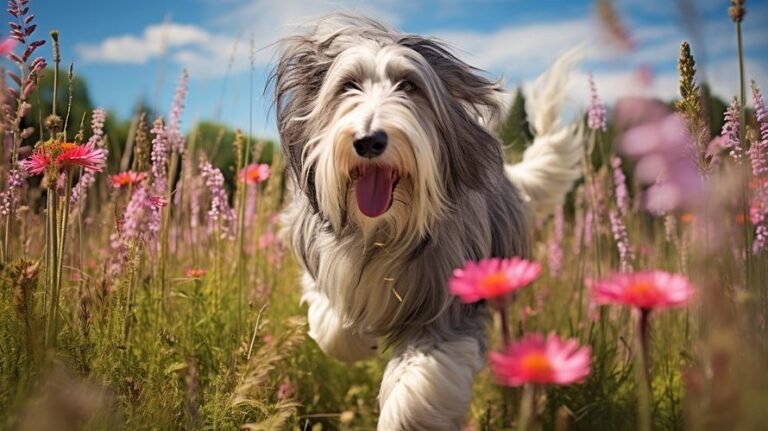Did you know that the eye-catching, perennially energetic Bearded Collie hails from Scotland, with a history dating back to the 1500s? Frequently mistaken for the popular English Sheepdog, the ‘Beardie’, as this breed is affectionately known, was bred as a herding dog. But their friendly, sunny disposition and their undeniable charm have made them a favorite choice as a family pet around the world.
Yet, owning a Bearded Collie or any dog for that matter isn’t all cuddles and play. One of the most vital aspects of dog ownership is rule one, that is – proper nutrition. Being a medium-to-large breed, the Bearded Collie has a unique dietary requirement due to its active lifestyle and long, lustrous coat that needs to be maintained.
So, what is the best food for a Bearded Collie?
Simply put, a balanced diet with the proper nutrients, such as protein, carbohydrates, and fats, is recommended for a Bearded Collie. But keeping their size, age, metabolism, and health status into account, there’s a little more to it. This article will be a comprehensive guide to help you give your Beardie the best possible chow time.
Let’s start with protein. Dogs, irrespective of their breed, require protein for muscle growth and repair. Your Bearded Collie is no exception. The Association of American Feed Control Officials (AAFCO) recommends a minimum of 18% protein for adult dogs and 22% for puppies. Proteins can be sourced from both animals and plants; however, animal-based proteins are generally more beneficial to dogs.
Common sources of animal-based proteins in dog food include chicken, beef, fish, lamb, and turkey. Plant-based proteins can come from peas, lentils, and beans to a certain extent. However, it’s important to note that while plant-based proteins can offer essential amino acids, they don’t provide all the nutrients dogs need, making meat-based proteins a better choice.
Carbohydrates are the next macronutrient that should be part of a Bearded Collie diet. These offer a source of quick energy that can fuel the Beardie’s active lifestyle. Just as with proteins, the source of these carbs is crucial. Complex carbs that come from sources such as sweet potatoes, brown rice, or oats are much healthier choices compared to simple carbs found in filler ingredients like corn and wheat.
Then there’s the fat quotient. A good dog diet must include at least 5% of fat for adult dogs and 8% for puppies. Fats are a concentrated source of energy and essential for maintaining your dog’s skin and coat health. But remember, not all fats are equal. High-quality natural sources such as fish oil or flaxseed oil are way healthier than some processed fats that are typically added in low-quality dog food brands.
Vitamins and minerals are other significant factors to consider. Your Bearded Collie’s diet should contain a balanced mix of necessary vitamins such as A, E, and D, as well as important minerals like calcium and phosphorous.
But what’s a healthy meal without some greens? Fresh fruits and vegetables are a rich source of fiber, antioxidants, and other key nutrients that your dog’s health. Apples, blueberries, pumpkins, carrots, peas, and spinach are popular choices that can be easily added to a dog’s meal.
Now, while all these can sound a little overwhelming, many high-quality dog food brands include all of these in their recipes. Many dog owners prefer dry kibble for its convenience and long shelf life, while others lean towards wet canned food for the hydration benefits and meaty taste their pets love.
One common strategy is to mix both dry and wet dog food for the best of both worlds. There are also raw and freeze-dried food options that are gaining popularity lately, though they can be more expensive.
But remember, what works best for your Bearded Collie will depend on several factors including their age, weight, activity level, and even personal preference. What is more, it is always best to consult with your vet for personalized nutrition advice for your furry friend.
Over time, you’ll be able to observe what your pet likes and dislikes, and what seems to agree with their digestive system and overall health. After all, our dogs aren’t just pets, but part of the family. A little care in their feeding routine can ensure they live a long, healthy, and happy life by our side.



